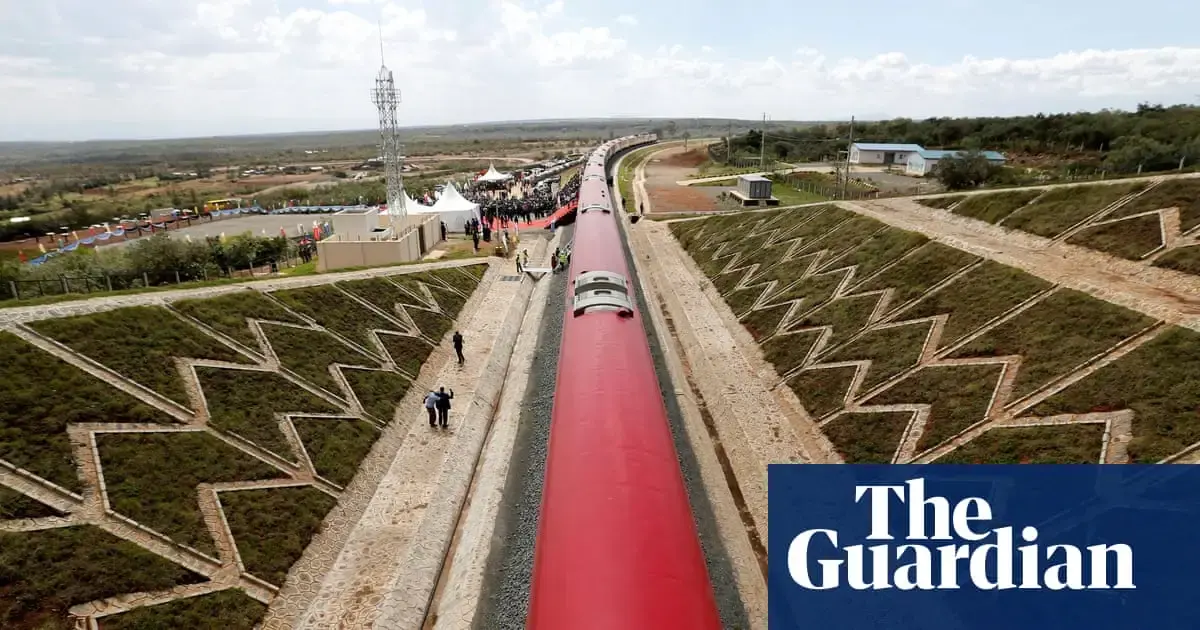- cross-posted to:
- china
- world@lemmy.world
- cross-posted to:
- china
- world@lemmy.world
Never make a loan with the Chinese government. They intentionally bankrupt you to “borrow” your asset (in many cases, important sea ports) for 99 years. They update that contract every year to lend it fir the next 99 years. You effectively gave away your asset to China forever.
That’s also what the occupiers of China did to China itself before the end of WW2 – seize Chinese ports indefinitely.
It’s a fundamentally different problem here: it’s new infrastructure, which in this day and age is barely profitable in terms of first-order effects (fees, fares, etc.) but is significantly profitable in terms of second- and third-order effects (economic growth, new businesses, yada yada).
If you could build a new subway in New York, spend zero capital, but have to give up the fare revenue for that subway, why wouldn’t you?
Also, the India/US alternative is to… Just outright give the Indian Adani group a majority stake in their port expansion. So much better. So much. Truly.
This was the entire point. If you loan out money that immediately gets paid to construction firms you own, you’re effectively just charging people (with interest) to be neocolonialized.
🤖 I’m a bot that provides automatic summaries for articles:
Click here to see the summary
Lending from Chinese state-backed banks has helped to build railways in Kenya and power plants in Cambodia, along with thousands of other projects.
To mitigate the risk of future defaults, Chinese policymakers have introduced a number of measures, including reducing loans for infrastructure projects while ramping up emergency lending.
China has created “a safety net” for countries in financial distress – “and, by extension, their highly exposed Chinese creditors”.
The AidData report cites figures from the Gallup World Poll which shows that public approval ratings for China in low- and middle-income countries fell from 56% in 2019 to 40% in 2021.
But the AidData researchers found that between the early years of the BRI (2014-2017) and the latter period (2018-2021), Chinese lenders increased the maximum penalty interest rate for late repayments from 3% to 8.7%.
Bradley Parks, one of the report’s authors and the executive director of AidData, said: “Beijing is trying to find its footing as the world’s largest official debt collector at a time when many of its biggest borrowers are illiquid or insolvent.
Saved 71% of original text.
I always wondered this, what happens if a country in debt gets conquered by another entity? Are the debt still valid?
As with everything concerning international law: it depends on the weapons and strategic alliances of each entity.
There are several reasons why China is ramping up ICBM production, the possibility of a country in debt “switching sides” in order to avoid payment, is likely one of them.
Hopefully this will be helpful (to understanding this type of debt):
Not saying it will be repaid, but at least the article goes into how debt is handled when governments change hands.
I do feel many of these nations should just straight up rent ports and such to China instead of taking the loans, in exchange for a lump sum payment, with restrictions for military use/limitations, and usage in support of war.
Might not get quite as much money, but seems far more favorable than the outcomes of belt-and-road loans (not just in the unlikelihood of debt repayment, but how the funding is used [vendor/company restrictions]).




